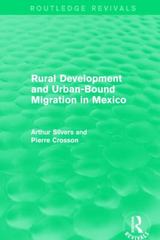Question
EXPLAIN ALL BELOW ASAP. OR ILL RATE YOU UNHELPFUL 91.All of the following are true about international trade except that a. The gains from international
EXPLAIN ALL BELOW ASAP. OR ILL RATE YOU UNHELPFUL
91.All of the following are true about international
trade except that
a. The gains from international trade depend on
specialization with comparative advantage.
b. Absolute advantage without comparative
advantage does not result in gains from
international trade.
c. Absolute advantage is defined as the ability of
one nation to produce a product at a relatively
lower opportunity cost than another nation.
d. Where there is reciprocal absolute advantage
between two countries, specialization will make it
possible to produce more of each product.
92.If the central bank of a country raises interest
rates sharply, the country's currency will most
likely
a. Increase in relative value.
b. Remain unchanged in value.
c. Decrease in relative value.
d. Decrease sharply in value at first and then
return to its initial value.
93.Which one of the following groups would be
the primarybeneficiary of a tariff
a. Domestic producers of export goods.
b. Domestic producers of goods protected by the
tariff.
c. Domestic consumers of goods protected by the
tariff.
d. Foreign producers of goods protected by the
tariff.
94. In the law of comparative advantage, the
country which should produce a specific product is
determined by
a. Opportunity costs.
b. Profit margins.
c. Economic order quantities.
d. Tariffs.
95.Assuming exchange rates are allowed to
fluctuate freely, which one of the following factors
would likely cause a nation's currency to
appreciate on the foreign exchange market?
a. A relatively rapid rate of growth in income that
stimulates imports.
b. A high rate of inflation relative to other
countries.
c. A slower rate of growth in income than in other
countries, which causes imports to lag behind
exports.
d. Domestic real interest rates that are lower than
real interest rates abroad.
96.If the US dollar declines in value relative to the
currencies of many of its trading partners, the
likely result is that
a. Foreign currencies will depreciate against the
dollar.
b. The US balance of payments deficit will become
worse.
c. US exports will tend to increase.
d. US imports will tend to increase.
97.Exchange rates are determined by
a. Each industrial country's government.
b. The International Monetary Fund.
c. Supply and demand in the foreign currency
market.
d. Exporters and importers of manufactured
goods.
98.If the value of the US dollar in foreign currency
markets changes from P1 = 6 marks to P1 = 4
marks
a. The German mark has depreciated against the
dollar.
b. German imported products in the US will
become more expensive.
c. US tourists in Germany will find their dollars will
buy more German products.
d. US exports to Germany should decrease.
99. Which of the following measures creates the
most restrictive barrier to exporting to a country
a. Tariffs.
b. Quotas.
c. Embargoes.
d. Exchange controls.
100.Which of the following is not a foreign
exchange control that maybe implemented by a
country?
a. Banning possession of foreign currency by
citizens.
b. Fixed exchange rates.
c. Restricting currency exchange to government
approved exchangers.
d. Requiring a floating exchange rate.
Step by Step Solution
There are 3 Steps involved in it
Step: 1

Get Instant Access to Expert-Tailored Solutions
See step-by-step solutions with expert insights and AI powered tools for academic success
Step: 2

Step: 3

Ace Your Homework with AI
Get the answers you need in no time with our AI-driven, step-by-step assistance
Get Started


